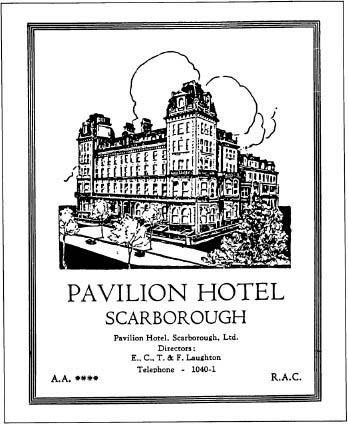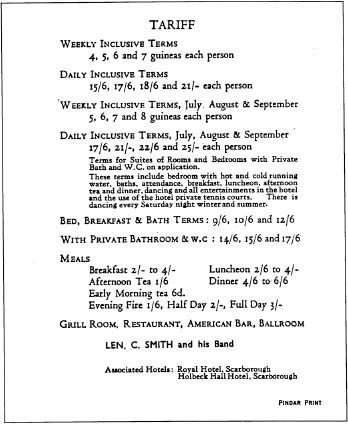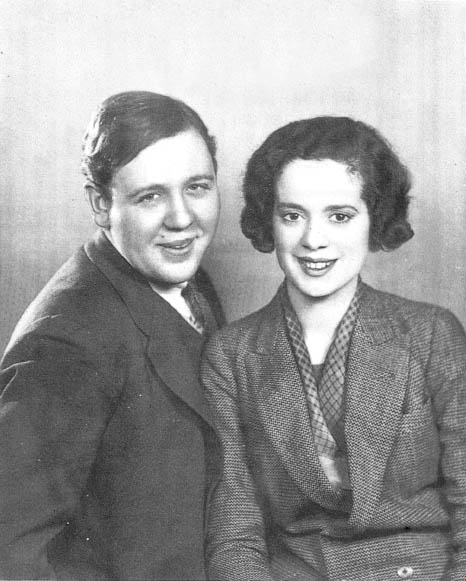Charles Laughton (53 page)
Authors: Simon Callow

Frank, a gentle, sensitive creature, whose lover, his partner in the Pavilion Hotel, had died of cancer the year before, was sweet and patient with him, and shared a kind of rota with Elsa. Somewhere towards the end, Albert Finney was given a glimpse of ‘this Big Man’ – ‘my first look at death.’ Elsa had thought Albert ‘sufficiently brilliant’ to see ‘a Giant going.’ ‘The top half of his body was twisted on to his left side and his face was pushed into the pillow, but even from that extraordinary angle, one could see that all the flesh had left him … somehow, the straggly, messy Wyatt Earp moustache showed that in his mind, when it was lucid, he was going to get up and act again …’
He died where he would most have wanted to die, in the schoolroom of his house, looked down on by his Utrillo, his Dufy and his Matisse. His funeral was shortly afterwards, in Forest Lawn, in a new wing. His brother Frank had negotiated a special cut-price with the cemetery, who were keen to get a ‘name’ for the first incumbent of the new wing:
pour encourager les autres
. In defiance of Elsa’s request that they should not do so, the mournful Unitarian choir sang. ‘Death, where is thy sting?’ The pall-bearers included Preminger, Isherwood and Jean Renoir; the service culminated in Isherwood’s oration, in
which
he spoke of Charles’
power
, powerful himself, but also ‘a vehicle of power, something through which power passed, and was transmitted … something was coming through him which was uncontaminated, even by an egotistic kind of personality.’ He then read excerpts from
The Tempest
, those lines of Prospero which have such extraordinary resonance at the death of actors.
These our actors
(As I foretold you) were all spirits, and
Are melted into air, into thin air
Prospero’s renunciation of his ‘art’:
this rough magic I here abjure
And finally, the epilogue:
As you from crimes would pardon’d be,
Let your indulgence set me free.
Potent as those lines in that context can never fail to be, their direct relevance to Charles Laughton is limited.
Lear
is the reference, the very line Charles had so feelingly quoted: ‘Vex not his ghost, O let him pass, he hates him that would upon the wrack of this tough world stretch him out longer.’ Unlike his King Lear, Laughton’s end was not ‘on a rising graph,’ but it was a sublime release.
He had said to Christopher Isherwood that he was appalled at how unprepared he was to die: the only thing that helped him was thinking about some of the Temple Gardens he’d seen in Japan. Something very remarkable happened to Charles Laughton in Japan, something which might have pointed to a new way of being, to a Houdini-like escape from the chains and locks and ropes and gags that constituted ‘Charles Laughton.’ Terry Jenkins: ‘He wanted to live as all people do when they’re in love, to live their life all over again with their loved one. He wanted to start all over again. He wanted to go to Japan, because it was a new country that he’d never been to. With one he loved. And he and I went to Japan and it was like two children exploring the world for the first time.’ ‘I see,’ wrote Elsa, ‘that Charles when in Japan did as the Japanese did. He felt himself akin to people who searched for and found peace.’ Terry:
I remember one day in the gardens of Kyoto, the three, five, and seven stones in the gardens. And he sat for five hours alone and I’d never seen him sit alone before. It was beginning to get sunset then, six or seven in the evening. And he said I just can’t take any more. And he didn’t talk about what had happened to him during that five hour period. But it was very traumatic to him … he had the
knowledge
, I didn’t have the knowledge and together we shared the experience of this knowledge. Me on the receiving end of the knowledge and the giving of what I experienced through Charles’ knowledge. And he, for the first time in his life, so much of it was pouring out of him … I remember one afternoon, the main shopping street in Tokyo. It was a Saturday afternoon before a national holiday. We were in the taxi, all the women were wearing kimonos and little girls wearing kimonos and he suddenly said stop, I want to, I want to walk. And he’d never been able to walk down a street such as Oxford Street. And together we walked down for an hour, not one person recognised him. He sort of had a half smile on his face, his eyes became almost almond and he said it was like a fantastic massage by humanity. We got to the end. And we sat in the coffee shop and he said I want to do it again, I want to walk back again. And we walked back along the street again. You don’t have to look where you’re going because so many people are around you, just holding you up. Not pushing you along, you’re just being wafted along. And he talked about this for hours and hours.
PERORATION
Some half dozen of Laughton’s performances of the thirties are of an originality and an intensity that sets them apart from the work of almost any other actor of the century, however skilled, however truthful, however audacious. The only other actor to whom he can be compared in this area where inner pressure and outer transformation combine to create almost totemic representations of the human condition is Marlon Brando, with whom he shares a number of common features: both ‘difficult’, both widely imitated, i.e. both synonymous in their age with acting, both held to have become parodies of themselves. The difference is that Laughton found another outlet for the creative pressure that tormented him as an actor; Brando has apparently not.
With these actors it is as if acting transcends the story being told, or the ostensible character being portrayed: it becomes an activity undertaken on behalf of the community to celebrate in a ritual or symbolic way the nature of human life. ‘The power of the actor,’ writes Michael Goldman in
The Actor’s Freedom
, ‘may well remind us of his primitive prototypes. He retains something of the strangeness and freedom of a man painted in blood and dressed animal skins howling at the moon, a shaman healing his tribe by allowing himself to be torn apart and reassembled by the spirits who possess his body.’ The shaman, according to Michael Harner, ‘shows his patients that they are not emotionally and spiritually alone in their struggles against illness and death … he shares his special powers and convinces his patients, on a deep level of consciousness, that another human is willing to offer up his own self to help them.’ So can the actor. Like the shaman he can make ‘a heroic journey’. But for each actor it is a different journey, a different celebration. Laurence Olivier has, like an athlete, celebrated man’s triumph over his own flesh, has reshaped, extended and contracted his voice and his body in defiance of any physical limitations nature might try to impose on him. He has made a mockery of nature. Charles Laughton, who thought he
was
a mockery of nature, took a different path.
In the
Psychoanalytical Contributions
, Annie Reich writes about what she calls ‘the structure of grotesque-comic sublimation’.
Grotesque
is a word that frequently recurs in accounts of Laughton’s performances, and, as defined by Frau Reich, it is certainly appropriate. ‘The grotesque … is characterised by a special form of disguise, that is, by a particular disfigurement and deformation … we find exhibition of devaluated parts of the body, of defects, which serves at the same time to unmask rivals. Confession and self-punishment are combined with aggression against others. This combination of aggression and exhibitionism turned simultaneously toward the actor’s own body and against a hated rival are typical for all cases of grotesque-comic art.’ Her analysis is strikingly applicable to many aspects of Laughton’s relationship to acting: ‘Probably even acclamation from outside is incapable of preventing anxiety and a deep depression. The forces of the actor’s conscience are too strong and therefore he is overwhelmed with anxiety and guilt … the grotesque-comic performance is characterised by an extreme sexualisation of the relationship between actor and public … Whenever someone is talented in caricature of grotesque-comic acting and the like, a tendency to self-exposure creeps in beside the wish to expose others, and this tendency to exhibit and confess produces the driving force for creation.’
But Frau Reich’s analysis, acute though it is, is not the whole story. Laughton’s grotesqueness stirs us too deeply for that. Enid Welsford has traced the origins and peculiar resonances of the figure who seems to stand behind so many of Laughton’s performances: the Fool, at once damaged and funny, potent and powerless. He is, above all,
different
. ‘The fool,’ writes William Willeford, ‘has antecedents and relatives among a wide range of people who in various ways violate the human image and who come to a
modus vivendi
with society by making a show of that violation.’ Bligh, Barrett, Nero, are all outsiders, oddities; they are all imbued with the feeling that Laughton, according to Elsa Lanchester, had about himself: that he didn’t really belong to the human race. Like the Fool, he came to terms with his strangeness by displaying it, and the result was the same: ‘Grotesques have both positive and negative powers, they are hideously attractive; they should be approached and avoided, abused and placated.’ He disturbed and appealed in equal measure.
In order to create what he did, he cultivated this feeling in himself. He went deeper and deeper into it, forcing more and more grit into the oyster, to produce bigger and bigger pearls. As long as he could bear it, it enabled him to give performances that have the force of the great paintings from which he drew such comfort and inspiration.
‘Every actor worth his salt,’ Laughton said in an interview, ‘must
create
the character he plays out out of his mind, his perceptions, his experience – otherwise he’s not an actor at all. Great acting is like painting. In the great masters of fine art one can see and recognise the small gesture of a finger, the turn of a head, the vitriolic stare, the glazed eye, the pompous mouth, the back bending under a fearful load. In every swerve and stroke of a painter’s brush, there is an abundance of life. Great artists reveal the god in man; and every character an actor plays must be this sort of creation. Not imitation – that is merely caricature – and any fool can be a mimic! But creation is a secret. The better – the truer – the creation, the more it will resemble a great painter’s immortal work.’


An advertisement for the Pavilion Hotel during the Laughtons’ tenure.

Laughton in November 1928 at the time of
Pickwick
.

Charles and Elsa in February 1929.